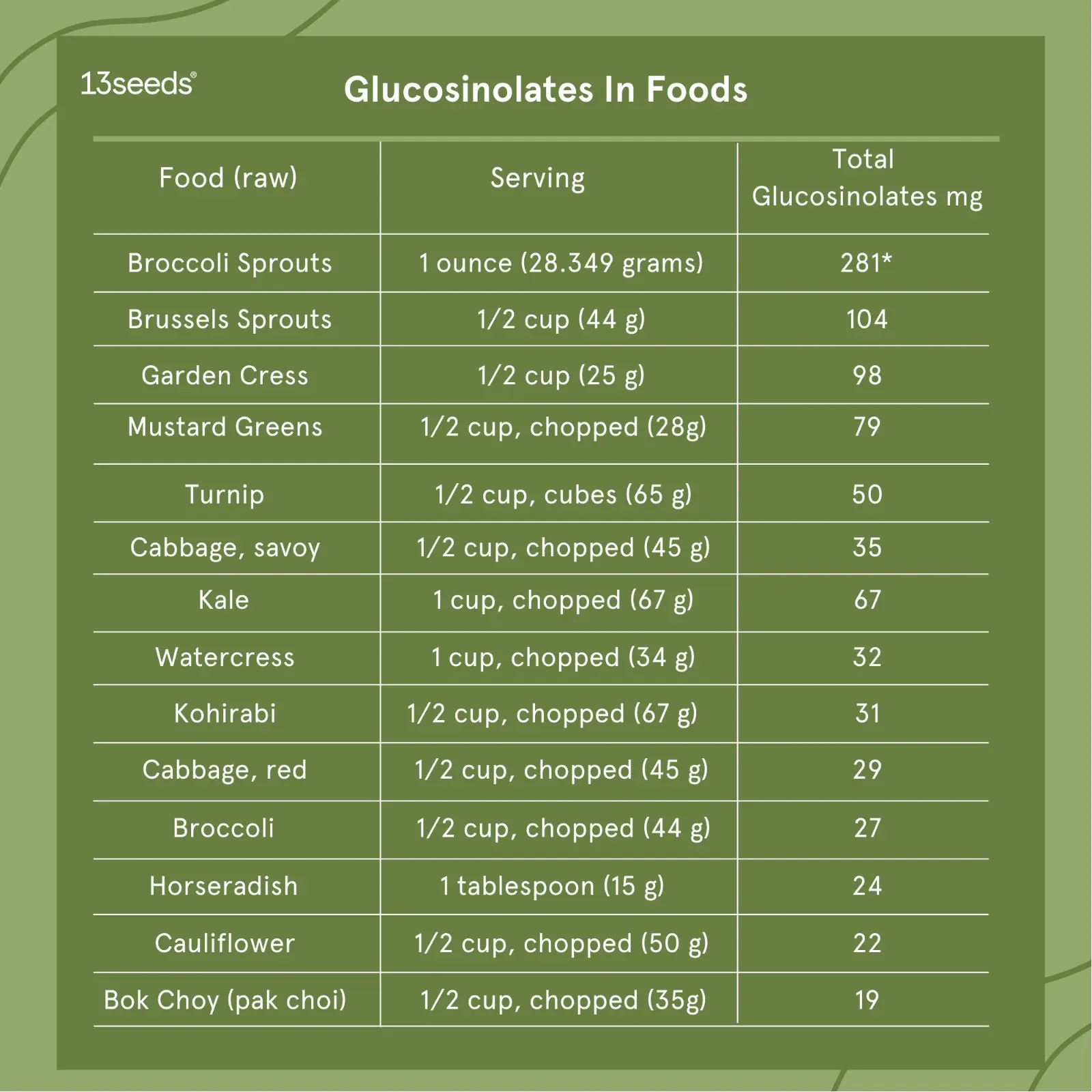Cruciferous Vegetables: Green veggies for a longer life

Eat your vegetables. While I can't speak for everyone, vegetables are not at the top of my desired food list. I much prefer fruit, but if you have to choose, then cruciferous vegetables are your best health bet.
These green wonders of vegetable fluff contain a bioactive compound called sulforaphane.
The bioactive compound is a wonder. It reduces all cause mortality because of the many health benefits is confers in the fight again cancer, heart disease, diabetes, chronic inflammation and neurodegenerative disease.
Here is a list of cruciferous vegetables.
- Broccoli
- Cauliflower
- Cabbage (including green, red, and Savoy varieties)
- Brussels sprouts
- Kale
- Bok choy (Chinese cabbage)
- Collard greens
- Arugula (rocket)
- Radishes
- Turnips
Their method of preventing cancer is adaptable and not restricted to a single pathway.
1. Slows progression of tumor cells.
2. Induces apoptosis
3. Detoxification and excretion of carcinogens
4. Direct deactivation of carcinogens
Research shows beneficial effects treating bladder, breast, lung and prostate cancer.
Incorporating cruciferous vegetables into their diet helped smokers lower their health risks significantly.
Seems like a good enough reason to consume your cruciferous vegetables if you are a smoker.
Gene expression and activation
By activating the nRF2 pathway, Sulphoraphane influences over 200 genes involved in cellular aging.
These genes turn on antioxidant and anti-inflammatory pathways, which confer many health benefits.
When we look at the studies related to Diabetes and cardiovascular disease the evidence is overwhelming.
Sulforaphane supplementation or consumption of sulforaphane-rich foods can reduce fasting blood sugar levels and improve insulin sensitivity in diabetic and pre-diabetic individuals by more than 20%.
Some studies have reported that sulforaphane supplementation or intake of sulforaphane-rich foods can decrease levels of oxidized LDL cholesterol and triglycerides in the blood, thereby reducing the risk of atherosclerosis and cardiovascular events.
sulforaphane may help prevent arteriosclerosis by reducing inflammation, oxidative stress, and plaque formation in the arteries. Some studies have shown that sulforaphane supplementation can improve arterial function and reduce arterial stiffness, which are markers of arteriosclerosis.
In some animal studies on mice, Sulforaphane has been shown to cross the blood-brain barrier. With the anti-oxidant and anti-inflammatory properties it is not surprising the benefits cruciferous vegetable confers to neurodegenerative disorders. Evidence suggests that sulforaphane may offer potential benefits for conditions such as Alzheimer's disease and Parkinson's disease.
The daily recommended dose
Which vegetable has the highest concentration level? It's actually broccoli sprouts, surprisingly.
Here’s a list of common doses.

Supplements containing sulforaphane or its precursor glucoraphanin are available in various forms, including capsules, powders, and extracts.
Dosage recommendations for sulforaphane supplements typically range from 100 to 250 milligrams per day
How do we ensure optimal absorption?
Glucoraphanin needs myrosinase enzymes to convert it to sulforaphane. Chopping, cutting and eating vegetable causes the release of this enzyme.
Consuming cruciferous vegetables with other foods that contain myrosinase, such as mustard seeds, radishes, or daikon, can enhance the conversion of glucoraphanin to sulforaphane and increase absorption.
When we steam or sauté vegetables, we maintain the activity of myrosinase while partially deactivating enzymes that cause degradation. The goal is to optimize the conversion of glucoraphanin to sulforaphane while minimizing nutrient depletion.
Recap
Recent studies highlight the health benefits of sulforaphane, which is found in cruciferous vegetables such as broccoli. This compound exhibits potential in combating cancer by stopping the growth of tumors and encouraging the elimination of abnormal cells. Yet sulforaphane goes beyond that - it serves as a superhero in fighting inflammation and oxidative stress, which are significant factors in aging, heart disease, and mental health conditions.
Here's the thing: sulforaphane could be the answer to staying healthy as we get older. It could make us live longer and better by protecting our cells from toxins and diseases. With each passing year, sulforaphane works its magic, making you feel stronger, sharper, and more energetic. So, next time you're savoring a plate of broccoli or Brussels sprouts, remember, you're not just consuming food – you're nourishing your body for a healthier, happier future.